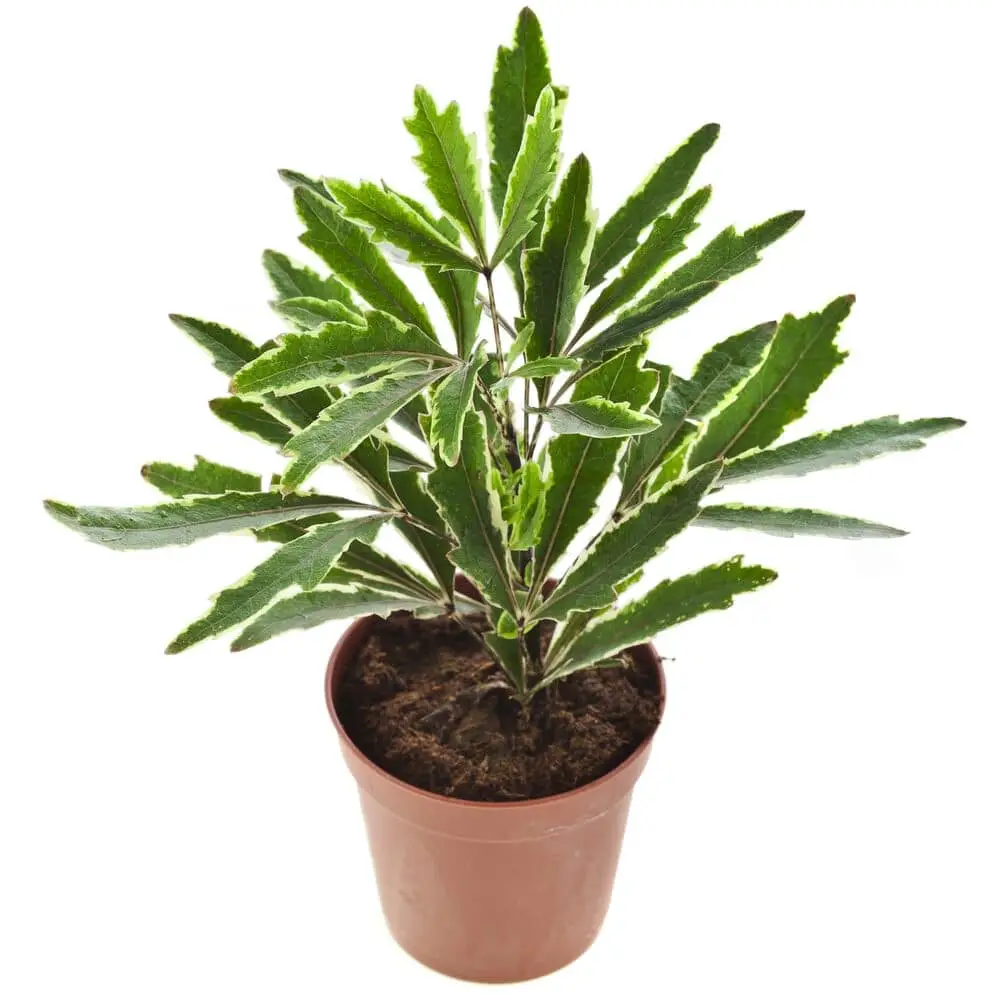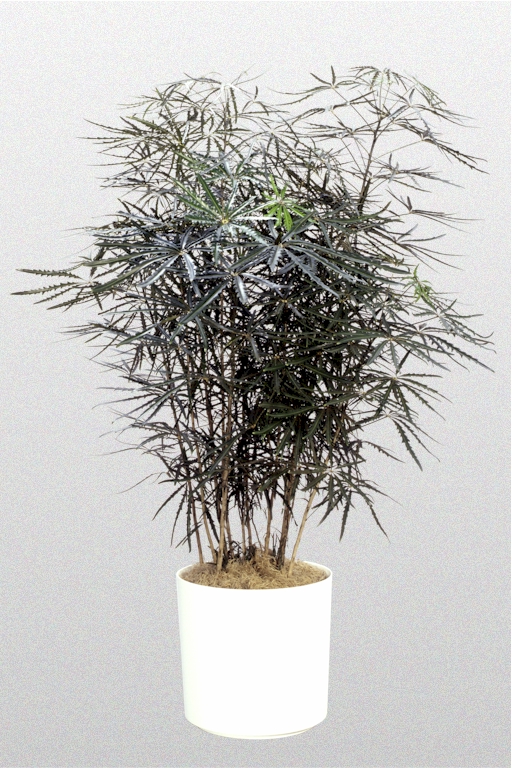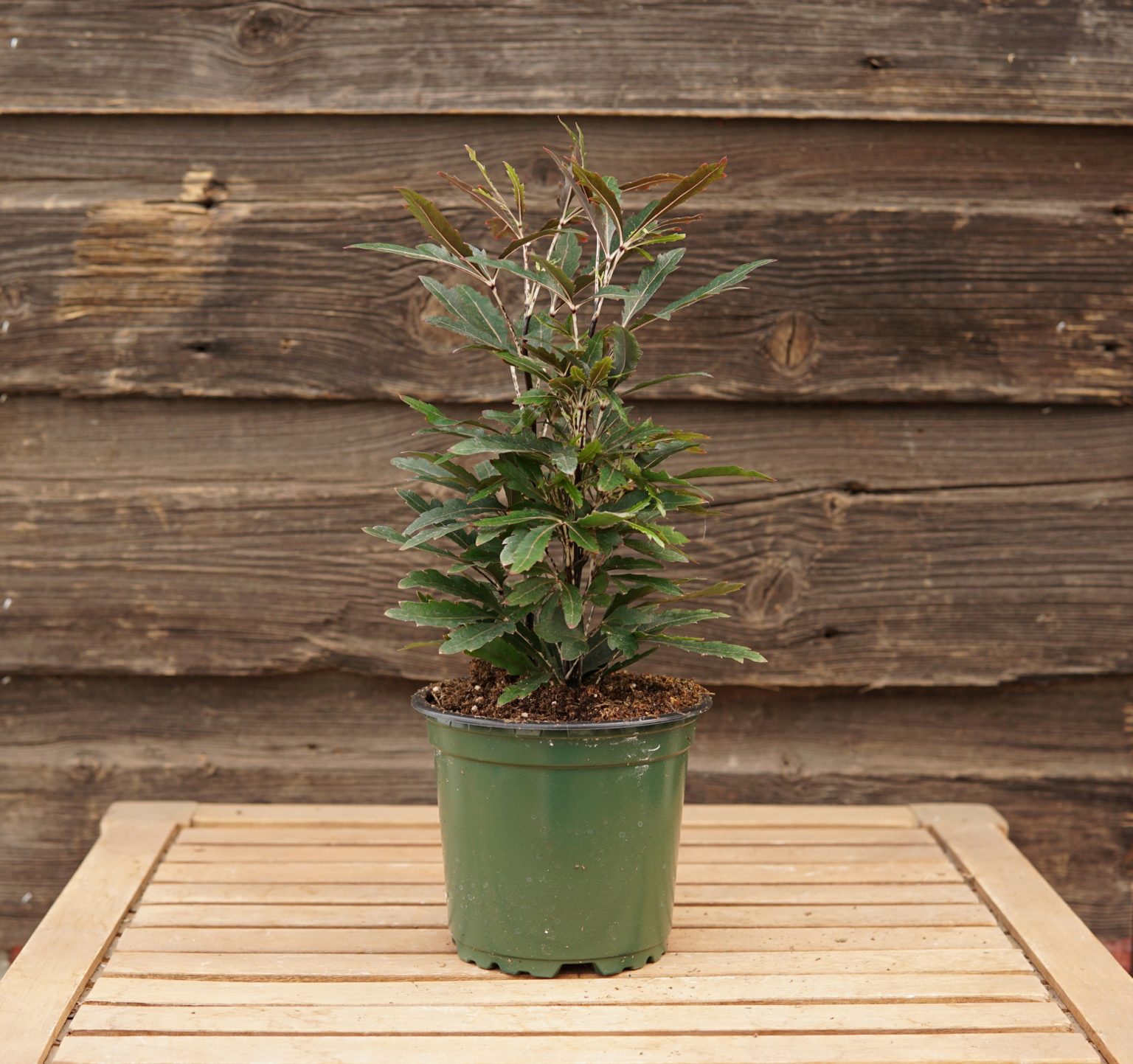
Live Plants Foliage Design Systems Corporate Part 2
1. Choose the right potting soil. False aralia plants need well-draining solid soil or potting mix to truly thrive. They do best with a steady stream of water, but fast drainage is essential—too much water retention is counterproductive to the plants' growth. Try a mixture with peat moss to start.
:max_bytes(150000):strip_icc()/FalseAralia-4505272359_fe01e7bb09_o-59c08200519de20010284198.jpg)
False Aralia Growing Schefflera Elegantissima Indoors
The False Aralia is an attractive plant that is suitable for indoor planting. Its leaves have elegant serrated edges that look almost like lace which will make it a unique addition to any indoor garden. If you love tropical houseplants, the Schefflera Elegantissima is a creative choice that will add an eye-catching touch to your home or offices.

Aralia False Aralia False Aralia House Plant Houseplant Etsy
False Aralia is slow-growing and doesn't need pruned unless you want to control its height. Over time, it will drop its lower leaves, revealing a single tree-like trunk. If you want, you can keep it short and shrubby by cutting it back each year. Don't be afraid to prune it to 6 inches (15 cm) from the soil level.

Dizygotheca elegantissima False Aralia Mickey Hargitay Plants
False Aralia, scientifically known as Dizygotheca elegantissima, is a captivating house plant that will add elegance to any collection of tropical plants. With its slender leaflets arranged in a circular pattern resembling fingers, it's no wonder it's also known as Finger Aralia.

False Aralia (Dizygotheca elegantissima) Madison Flower Shop
finger aralia plant Types of False Aralia Galaxy: Dark green leaves with smoother (less toothy) edges Gold Crest: Green leaves with gold edges Olympia: Red and purple tinted leaves False Aralia origins False Aralia is native to New Caledonia. This is an island in the South Pacific, near Australia. Is False Aralia rare?

False Aralia Plant Care & Growing Guide
A pot of Plantscape Aralia indoor plants is a fountainhead of positivity, good fortune, and harmony. An Aralia brings peace to a room, vivacity to an office, and grace to a retail space. False Aralia Majestic, pretty textures on the foliage, make the False Aralia plant a decor superstar. The False Aralia's serrated, little leaves are unique.

False Aralia in Syracuse, NY Coleman Florist inc
How to Grow False Aralia Plants. False Aralias have become some of the most popular houseplants. Aralias in small, decorative containers look great as coffee or side-table pieces. Taller, mature Aralias in larger containers are useful for decorating rooms and larger spaces. They require bright, indirect sunlight for most of the day.

False Aralia Creative Plant Designs
False Aralia plants prefer warm, semi-humid regions that aren't too hot. These plants do well in somewhat humid climates. 4. Soil When you are growing a false aralia plant, you'll want to use a peat-based potting mix. The soil you use shouldn't be too soft and absorbent. 5. Temperature

PlantFiles Pictures False Aralia (Schefflera elegantissima) by gingern
Avoid exposing them to cold drafts or temperatures below 60°F (15°C), as this can cause damage to the plant. Maintaining a humidity level of around 50-60% is beneficial for your False Aralia. You can increase humidity by placing a tray of water near the plant, using a humidifier, or misting the leaves regularly.

Photo of the entire plant of False Aralia (Plerandra elegantissima 'Galaxy') posted by
The False Aralia is known for its beautiful leaves, but it can be a bit of an enigma as it's a rainforest native. It's not as easy to grow as other plants in the garden because it requires more water and humidity than most plants do.

False aralia GREEN FOR INSIDE Pinterest
Place your false aralia in a location with plenty of indirect light. Avoid exposing your plant to direct sunlight which may affect the leaf color and damage your plant. If you live in a hot region, consider adding shears to your windows to limit sunburn. Also, rotate your False aralia regularly to encourage an even growth pattern. Water and.

False Aralia • Kiwi Nurseries Ltd
False aralia is a striking indoor houseplant that has serrated, thin leaves. While it can be needy with its watering and sunlight requirements, it's worth it to be able to take in that jungle-like appearance every time you walk by. It's green. It's variegated. It loves medium-light with room temperate conditions.

Snake plant , false aralia and umbrella plant Plants, Snake plant, Umbrella plant
False aralia: origin, flowering and properties. Native to New Caledonia, the false aralia (Plerandra elegantissima syn. Dizygotheca elegantissima syn. Schefflera elegantissima), also known as spider aralia or threadleaf aralia, belongs to the Araliaceae family and is a very popular houseplant.It grows up to 2 metres tall and has a slender, upright shape and an overall elegant appearance.

False Aralia Dizygotheca Elegantissima Plant in 12 Inch Pot About 55 inches tall Plants
A False Aralia, native to New Caledonia, has many different names depending who you ask: Dizygothica elegantissima, Schefflera Elegantissima, or Spider Aralia. Whatever you call it, this is a beautiful plant with long, narrow, serrated leaves in a palmate (finger-like) arrangement.

False Aralia House Plants Delivery Toronto JOMO Studio
False Aralias are small, tropical evergreen trees that are native to the islands of the South Pacific. In their native environment, Schefflera elegantissima can grow up to 26 feet tall, but when grown in pots or planters they seldom reach more than 4-6 feet tall.

False Aralia • Kiwi Nurseries Ltd
The False Aralia is by far one of the most popular species of umbrella plant. It is also commonly referred to as Plerandra elegantissima, or Dizygotheca elegantissima . However, the most current scientific name is Schefflera elegantissima. It comes from the Araliaceae family of plants, which are known for their unique foliage.